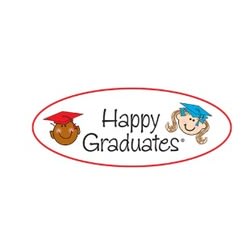Dive Brief:
- Just over 4 in 5 hiring managers — 84% — say most high school students are not prepared to enter the workforce, according to a report released by the U.S. Chamber of Commerce and College Board. And 80% say recent high school graduates are less prepared for the workforce compared to previous generations.
- The 500 hiring managers surveyed across a range of small, mid-sized and large companies say they value soft skills such as critical thinking and communication in entry-level hires. Nearly 90% say real-world experience gained through internships, career and technical education, or jobs is "most valuable" — even more so than a formal education.
- An overwhelming majority (92%) say there should be more business courses in high school.
Dive Insight:
The 2025 New Hire Readiness Report comes as College Board prepares the public launch of "AP Career Kickstart" courses, which preliminarily include Advanced Placement Business with Personal Finance and AP Cybersecurity. The courses are expected to be available nationwide by fall 2026 and have so far been approved by 13 states.
These courses are meant to build career skills, offer employer-endorsed credentials, and are being tested in classrooms throughout the country to finetune their instruction and teacher support, according to a joint press release by College Board and the U.S. Chamber of Commerce.
In addition to its latest launch, the College Board creates and administers a variety of AP courses that have the rigor of college courses.
Schools have been increasingly emphasizing career and technical education, financial literacy, and real-world opportunities for students in recent years. In 2019, about 85% of private and public school students took at least one CTE course, according to data from the National Center for Education Statistics. The most recent data available shows 98% of public school districts offered CTE programs at the high school level in 2016-17.
In recent years, more states have also required graduating high school students to take a course in personal finance. As of 2024, at least 35 states had this requirement, according to the Council for Economic Education.
The data on managers' perceptions of high school graduates' career and workforce readiness also comes on the heels of the latest results from the Nation's Report Card, which also show that high schoolers are graduating with weaker academic skills than in the past.
“At a critical juncture when students are about to graduate and enter the workforce, military, or higher education, nearly half of America’s high school seniors are testing at below basic levels in math and reading," said U.S. Education Secretary Linda McMahon in a statement on the results earlier this month.
However, the U.S. Chamber of Commerce report released Monday shows that hiring managers view high school graduates with industry-recognized credentials as more prepared (71%) than those without industry-recognized credentials (40%).
An overwhelming majority of those surveyed (97%) said there should be more high school courses that teach professional career skills like communication, collaboration and critical thinking. Business courses came in at a close second (92%).
"The message from America’s job creators is clear: we need to do more to equip students with the skills they need to succeed," said Neil Bradley, chief policy officer and head of strategic advocacy at the U.S. Chamber of Commerce, the world’s largest business advocacy organization.
Bradley added that incorporating business and financial literacy into high school curriculum would lead to “a more competitive and job-ready workforce for the future."












